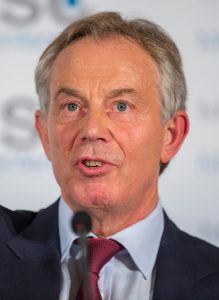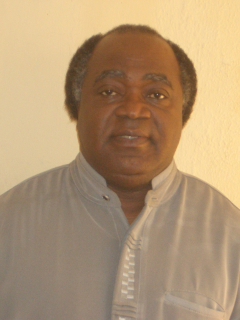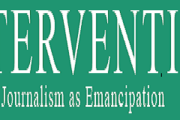
Prof Isawa Elaigwu
By Adagbo Onoja
In the first part of this interview, titled “Nigeria: Herdsmen Conflict is Civil War in the Making”, Professor Isawa Elaigwu went into details about how federalism could manage the variegated conflicts the Nigerian State confronts today even though pointing out how herdsmen-farmers’ conflict could be an invitation to a civil war. He dismissed the notion that the amalgamation of the Northern and Southern Nigeria by the colonialists in 1914 was a mistake, condemning that argument as essentialist. Elaigwu defended his claim that the political class is its own worst enemy. He, however, admitted that the military which came in “as political physicians had ended up as political patients requiring even greater dosages of the medicinal prescription they had come in to serve to politicians”. In this second and concluding part, the interview focus shifts to Africa’s place in the emerging global order. Both the first and second parts of the interview rhyme with the claims in the preface to the entire interview which went as follows:
With the debate on restructuring, for instance, becoming a shouting match between the protagonists and the antagonists, it is an interesting time to interview Professor Jonah Isawa Elaigwu, one of the few scholars and practitioners of federalism left in Nigeria. He was the Director-General of the defunct National Council on Inter-Governmental Relations set up under the General Ibrahim Babangida regime in 1992. Added to that is the prestige of a doctorate in Political Science from Stanford University. So, when he talks federalism, he combines the force of theory and the empirical vigour of practice, including the practice of his plumage with Professor Ali Mazrui, the late Kenyan Political Scientist. If nothing else, the duo occupy their own castle in the linguistic constitution of Africa in the global space.
In fact, the headquarters of the Jos based Institute of Governance and Social Research that he now runs is named Ali Mazrui House. Ali Mazrui House is a small but seemingly interesting place. For one, everyone there appears to take saying hello to a visitor seriously. As one sat waiting for the appointment with Elaigwu on Monday, August 15th, 2016, no staff passed who failed to say hi to someone they certainly hadn’t seen around the place anytime recently. Everyone, right from the professor himself down, also seem to be time conscious. Even the receptionist manifested that. When he appeared to read me as probably anxious, he reminded me that my appointment was 12 noon. I told him I was absolutely relaxed. Before long, the summons upstairs came, even before it was noon. A small wait, then the small talks to fill the gaps since we last interacted and the interview began, with a reminder that I had an hour.
But I cheated the Prof. When the interview was over, I showed him the recorder. It was reading an hour, 18 minutes and 34 seconds. We laughed over that. I have listened to Professor Elaigwu on many platforms before. I have also been with him in the same office before. Listening to this interview, however, one could say that the older he gets, the more vigorous he is, both in delivery and the substance. He is obviously discharging from the cumulative experiences of having taught across the world, been a member of the Presidential Advisory Committee under the Babangida regime, resource person on federalism across Africa and Asia, consultant to several United Nations agencies and the author of over two dozen books, similar number of book chapters and academic essays.
Enjoy.

The Late MKO Abiola – the last voice for reparation

Tony Blair, the West and Africa
You located the crisis in Nigeria partly in our failure to transfer political institutions along with the core values underpinning such institutions as defined by the original creators of such institutions. Moving this to the African scale, the late Ali Mazrui with whom you shared a lot of your academic life had this notion of the triple heritage. To what extent do you link this contradiction to the triple heritage?
Well, I don’t know. The triple heritage from Ali Mazrui identifies three features – Western, Islamic and the indigenously African. We have been unable to synthesise the three. Take the Western, for example. Western civilisation in Africa was accompanied with the Bible. Islamic civilisation with what? The Quran and the traditional African society with all kinds such as the Ifa corpus and what have you. Now, have we been able to synthesise Western tradition with Islamic tradition with the African tradition? Each comes with a baggage of crisis. If African civilisation tolerated polygamy, Western Christianity believed in monogyny. That is in spite of Henry VIII, if you remember Henry VIII with his polygamous tendency. Islam accommodated polygyny and traditional African society also accommodated polygyny. Western society dealt more with nuclear family. In the traditional African society, extended family was the rule. Without extended families, some of us would never have gone to school after our parents died. There were African traditional values that were good, Islamic values that are good. Same with Western values. Somehow, we have not been able to bring the three together harmoniously. I think that is one of the greatest problems we had, the triple heritage. In most cases, Westernized Africans, like Ali Mazrui would say, suffer from cultural schizophrenia in which you even go to the house of a Westernized African, his wife comes from his own ethnic group but he is more interested in speaking English to the children. ‘Hey, say Hello to uncle’, forgetting that your language is the basis of your identity.
Then when it came to the state, the issue was, how do you find an appropriate medium between Western, Islamic and the traditional. In Nigeria, for example, in religion, if you remember those days, there was a big debate about theocratic and secular Nigeria. Finally, the compromise was there should be no single religion, which means you can have many. That was the compromise to avoid crisis. All these are part of the problems of synthesising three heritages –traditional, Islamic and Western. The crisis still exists. Many of us, you and I, are partially victims of cultural schizophrenia. The final point here is this. Many of us have been caught between transition from traditionalism to modernity. In many of our families, some of us are first generation graduates, nobody else from our family went to school. So, as we transit from traditionalism to modernity, there is a friction, a crisis, mental, psychological crisis which we experience. And this is what Professor Mazrui was getting at and this creates problems for state building, for nation building, for political development and for all kinds of developments, social development, economic development.
While Africa is still trying to come to grips with its triple historical experiences, you recall Tony Blair describing it as a scar on the conscience of the world. Do you observe any sense of urgency in dealing with that scar, both within and outside Africa?
It depends on what he means. My attitude would be that Africa is a scar because the rest of the world have exploited, decimated, dehumanised and wantonly butchered Africa to a point where you could say Africa, the so-called Dark Continent, has been rendered a shadow of itself. Yes! So, Africa is a scar. And if Africa is a scar on the conscience of the world, those who have been pushing for reparation for all the slavery and other atrocities have a point. The late Abiola was pushing for it. The Organisation of African Unity, now African Union, was pushing for reparations too and suddenly it stopped after Abiola died. And I think the West that now talks about human rights when, actually, they are the greatest violators of human rights historically, should realise that the scar remains a very bold scar on the globe indeed. And that some of the things that are happening in Africa are traceable to the West or to the North. And if you come to the global arena of politics and economics, the North-South relations becomes important. And for us in Africa, the North has done very little to reverse some of the atrocities or even compensate a little for the atrocities.
How do you imagine the unfolding global order in relation to the African crisis, given its key features such as the global war on terror and the anxiety over emerging and status quo great power relations. It is always a complicated moment in history.
I am not sure whether to call it global order or global disorder but one thing definitely is happening. After WW11, we had the emergence of two super powers and some medium powers. By the end of the 20th century, in the aftermath of the Soviet Union, we had one super power, a number of medium powers and increasingly, greater interdependence among nations. We are realising over time that technology has become so important to relations among states that even security is no longer the preserve of the super powers or medium sized that we have in the global system. First, wrong use of military power to enforce order has become outdated. Economics becomes a good penetrative skill. So you have a situation in which Japan that was defeated in the 2nd WW defeated the West technologically after the 2nd WW through electronics, automotive industries by which the economies of Europe were basically taken over by Japan, even up till now. Then China closed up for some years and came back with a bang. China today is the second largest economy in the world, indispensible in the catalogue of the global order. So, it is not just the military power anymore, in fact military power is not as important as economic power now. But in this global context, you do have a situation in which the aggrieved, using technology, have embarked on creating maximum insecurity even for the great powers. In addition, Third World countries are still complaining about how unfair the global system is. They have approached the UN, hoping to use it as the most conducive medium to make the global order more responsive to them. So far, they have failed. And that is where the African crisis can be located.
So, how the global order relates to Africa can be problematic. The global order itself has changed. Gunboat diplomacy is no longer the tool. The world has become a hamlet. A thousand page document can come here without security knowing. The old concept of the state has to adapt. What is clear is that the democratic principle of the West has been denied the UN. There is veto power which is symbolic demonstration of inequality. So, one challenge is how to move internal democracy to the multilateral level. Smaller countries are grossly disadvantaged. So far then, there is no new world order. The order still favours the big powers. Our hope is that the next half a century, some African countries will move up through technology to help bring about equitable order.




























